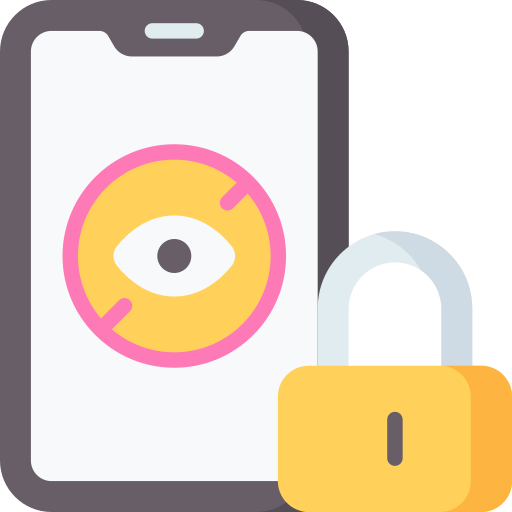The Importance of Parental Control in the Digital Era
In today’s digital era, where technology is deeply woven into the fabric of our daily lives, parental control has become more crucial than ever before. With an abundance of internet access and online content readily available, parents must take an active role in protecting their children from potential dangers and harmful influences that lurk in the virtual world.
One of the primary reasons parental control is important is the risks associated with unsupervised internet access. Without proper supervision, children can stumble upon inappropriate content, engage in cyberbullying, or even become targets of online predators. The internet is an expansive space with limitless information, and it is essential for parents to ensure that their children have filtered and controlled access, protecting them from harmful experiences that could have long-lasting psychological effects.
Understanding the Risks of Unsupervised Internet Access
Children today have unprecedented access to the internet, and while this opens up a world of educational and entertainment opportunities, it also exposes them to numerous risks. Without suitable supervision, children can easily stumble upon inappropriate content, encounter cyberbullying, or fall victim to online predators. Even simple actions like downloading apps or clicking on unfamiliar links can lead to malware and viruses that compromise both the child’s device and their personal information.
Unsupervised internet access also poses psychological risks to children. Exposure to violent or explicit content can have a lasting impact on their mental health and behavior. It can desensitize them to real-world violence, distort their perception of relationships and sexuality, and contribute to the development of addiction-like behaviors. The constant availability of social media can also negatively affect their self-esteem, as they compare themselves to carefully curated online profiles and fall prey to cyberbullying. It is crucial for parents to understand these risks and take the necessary steps to protect their children in the digital era.
The Psychological Impact of Unfiltered Online Content on Children
Today, children have unprecedented access to a vast and diverse range of online content. While this presents numerous opportunities for learning and exploration, it also exposes them to potentially harmful material. The psychological impact of unfiltered online content on children cannot be underestimated. Exposure to violent, explicit, or age-inappropriate content can have lasting effects on their mental and emotional well-being.
Research has shown that constant exposure to disturbing or distressing material can contribute to an increased risk of anxiety, depression, and post-traumatic stress disorder in children. The graphic nature of some online content can desensitize them to violence, leading to a distorted understanding of real-world consequences. Additionally, exposure to cyberbullying, body shaming, and other forms of online harm can significantly impact their self-esteem and social development. Therefore, it is crucial for parents and guardians to take proactive measures to ensure that their children are protected from such content and receive the necessary support to navigate the digital landscape safely.
Exploring the Benefits of Implementing Parental Control Software
As we delve into the topic of parental control software, it becomes evident that there are several benefits associated with its implementation. First and foremost, such software allows parents to have a greater level of control over their children’s online activities. By setting appropriate filters and restrictions, parents can ensure that their children are not exposed to harmful content or online threats.
Another advantage of using parental control software is that it helps parents monitor their children’s online behavior. This can provide valuable insights into the websites they visit, the apps they use, and the amount of time they spend online. By having access to this information, parents can identify any potential issues or areas of concern and take appropriate action. Additionally, parental control software can assist in creating a safe and secure online environment, where children can explore and learn within defined boundaries.
Educating Parents about the Dangers of Cyberbullying
As parents, it is crucial to be informed about the dangers of cyberbullying that our children may encounter in the digital space. Cyberbullying refers to the act of using technology, such as social media platforms or messaging apps, to harass, intimidate, or humiliate others. Unlike traditional bullying, cyberbullying can occur at any time and reach a wider audience, making it even more harmful. It is important for parents to understand the negative impact cyberbullying can have on their children’s emotional well-being, self-esteem, and overall mental health.
Educating parents about the dangers of cyberbullying is essential in order to equip them with the knowledge and tools needed to protect their children from such harmful situations. By knowing what cyberbullying looks like and understanding its potential consequences, parents can recognize the signs in their own children and take appropriate actions to intervene and provide support. Additionally, raising awareness about cyberbullying empowers parents to have open and honest conversations with their children about online safety, fostering trust and encouraging communication about any problems or incidents they may encounter.
How Parental Control Enhances Online Safety for Children
Parental control software has emerged as an essential tool in ensuring online safety for children in the digital age. With the ever-expanding access to information and the prevalence of online threats, it is crucial for parents to have the means to monitor and regulate their children’s online activities. These software programs allow parents to set limits on what content their children can access, block inappropriate websites, and even track their online interactions.
By implementing parental control, parents can create a safe digital environment for their children. These software programs act as a virtual shield, protecting children from harmful and explicit content that may be easily accessible online. They provide peace of mind for parents, knowing that their children are not exposed to inappropriate material or potential dangers that lurk in the vast realm of the internet. Additionally, parental control software can help prevent children from inadvertently sharing personal information or engaging with strangers online, minimizing the risks of cyberbullying, harassment, and grooming. With the power to monitor and regulate internet usage, parental control software plays a vital role in safeguarding children in the online realm.
Addressing the Issue of Online Predators and Grooming
Online predators and grooming pose a significant threat to children’s safety in the digital world. As the internet continues to evolve and become more accessible, it is crucial for parents to address this issue and take proactive measures to protect their children. Online predators often lurk in various online spaces, such as social media platforms, online gaming communities, and chat rooms. They can pose as friendly individuals, gaining the trust of unsuspecting children before turning their intentions malicious. Grooming is a process where predators manipulate and exploit young victims to engage in inappropriate activities. This can include sextortion, blackmail, and even physical harm. To combat these dangers, parental control measures play a vital role in monitoring and restricting online activities to ensure children’s safety and well-being.
The Role of Parental Control in Managing Screen Time
With the increasing prevalence of screens in our everyday lives, it has become essential for parents to play an active role in managing their children’s screen time. Parental control software can be a valuable tool in helping parents regulate and monitor the amount of time their children spend on screens. By setting limits on screen time, parents can help ensure that their children have a healthy balance between online and offline activities. This can promote physical activity, social interaction, and overall well-being.
In addition to setting time limits, parental control software can also help parents restrict access to certain websites and apps. This can be particularly important in protecting children from inappropriate content or online dangers such as cyberbullying and online predators. By filtering and blocking certain content, parents can create a safe online environment for their children, where they can explore the digital world without stumbling upon harmful or age-inappropriate material. With the help of parental control software, parents can have peace of mind knowing that their children are engaging in screen time activities that are both safe and beneficial.
Promoting Healthy Digital Habits through Parental Control
In today’s digital world, promoting healthy digital habits among children is crucial for their overall well-being. Parental control software can play a vital role in achieving this goal. By utilizing parental control software, parents can monitor and manage their children’s online activities, ensuring they engage in safe and age-appropriate content.
One of the key advantages of parental control is its ability to restrict access to inappropriate websites. With this feature, parents can prevent children from stumbling upon explicit or harmful content that could negatively impact their psychological development. Additionally, parental control software can also help establish healthy screen time limits, allowing children to find a balance between the online world and other important aspects of their lives such as school work, physical activity, and social interactions.
Building Trust and Open Communication with Children about Internet Usage
Open and honest communication is crucial when it comes to building trust with children regarding their internet usage. By engaging in regular conversations about what they are doing online and who they are interacting with, parents can create a safe and supportive environment. It is important to listen attentively to their experiences and concerns without judgment, as this will foster a sense of comfort and encourage children to share any potential issues they may encounter online. By maintaining open lines of communication, parents can address any concerns or problems in a timely manner, offering guidance and support to ensure their children’s online experiences are positive and secure.
Creating an atmosphere of trust also involves empowering children to make informed decisions about their internet usage. By educating them about the potential risks and teaching them how to navigate the digital world responsibly, parents can help children develop the necessary skills to protect themselves online. This includes discussing topics such as privacy settings, password security, and the importance of thinking critically before sharing personal information. When children feel confident and knowledgeable about the potential dangers of the internet, they are more likely to make wise choices and seek help when needed. Trust can be further strengthened by setting clear boundaries and age-appropriate rules for internet usage, ensuring that children understand the expectations and consequences associated with their online behaviors.
What is parental control software?
Parental control software is a tool that allows parents to monitor and control their children’s internet usage. It typically includes features such as website blocking, time limits, and activity tracking.
Why is parental control important in the digital era?
Parental control is important because it helps parents ensure their children’s safety and well-being online. It allows them to protect their children from inappropriate content, cyberbullying, and online predators.
How can unsupervised internet access be risky for children?
Unsupervised internet access can be risky for children because they may come across harmful or inappropriate content, engage in cyberbullying activities, or become targets of online predators.
What is the psychological impact of unfiltered online content on children?
Unfiltered online content can have a negative psychological impact on children. It can lead to anxiety, depression, low self-esteem, and even exposure to dangerous ideologies or harmful behaviors.
How does parental control software enhance online safety for children?
Parental control software enhances online safety for children by allowing parents to filter and block inappropriate content, set time limits for internet usage, and monitor their children’s online activities.
What dangers are associated with cyberbullying?
Cyberbullying can have severe emotional and psychological consequences for children. It can lead to depression, anxiety, social isolation, and even suicidal thoughts or actions.
How can parental control software help educate parents about the dangers of cyberbullying?
Parental control software can provide parents with insights into their children’s online activities, allowing them to identify signs of cyberbullying and take appropriate actions. It can also provide resources and information on how to address and prevent cyberbullying incidents.
What is online grooming, and why is it a concern for children?
Online grooming refers to the process where an adult builds an emotional connection with a child online, with the intention of exploiting or sexually abusing them. It is a significant concern for children as it puts them at risk of harm and manipulation.
How does parental control software address the issue of online predators and grooming?
Parental control software can help protect children from online predators by monitoring their online activities, blocking suspicious individuals or websites, and alerting parents to potential risks or red flags.
What role does parental control play in managing screen time?
Parental control allows parents to set limits on their children’s screen time, helping them manage and balance the time spent on devices with other activities such as studying, physical exercise, and social interactions.
How can parental control promote healthy digital habits for children?
Parental control promotes healthy digital habits by encouraging responsible internet use, limiting screen time, and promoting a balance between online and offline activities. It helps children develop self-discipline and fosters a healthy relationship with technology.
How can parents build trust and open communication with their children about internet usage?
Parents can build trust and open communication by having regular conversations about internet safety, setting clear rules and expectations, actively listening to their children’s concerns, and fostering a non-judgmental environment where children feel comfortable discussing their online experiences.




